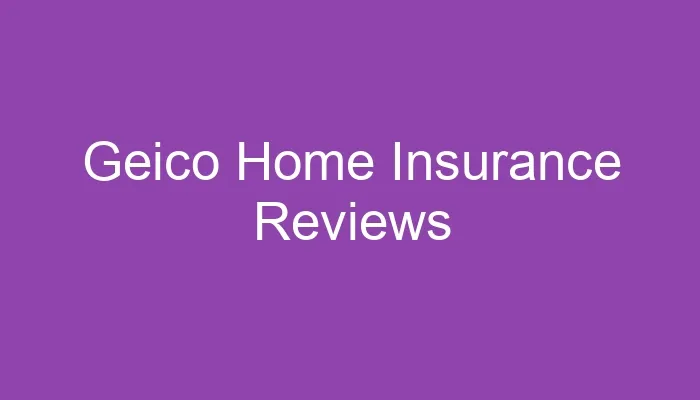When shopping for homeowners insurance, everyone wants the best deal, but how do you separate fact from fiction? With so many myths circulating about cheap homeowners insurance, it’s easy to make decisions based on misconceptions. To help you navigate through this process and ensure you find affordable coverage that meets your needs, let’s take a closer look at some of the most common myths and the facts you need to know.

Common Myths About Cheap Homeowners Insurance
Myth 1: The Cheapest Policy Always Offers the Best Value
Many homeowners think that a low-premium policy is the best option because it costs less.
- Fact: While cheap policies may seem attractive, they often come with limited coverage, higher deductibles, or exclusion clauses. A low premium could ultimately mean you’re underinsured, leaving you financially vulnerable if disaster strikes. It’s essential to ensure that the policy covers your home adequately and offers comprehensive protection.
Myth 2: Homeowners Insurance Covers Everything
A common misconception is that homeowners insurance covers every possible risk to your home and possessions.
- Fact: Standard homeowners insurance policies have exclusions for certain types of damage, like floods, earthquakes, and damage from wear and tear. For these types of risks, you may need additional coverage or separate policies. Always read the fine print and ensure you have the right coverage for your needs.
Myth 3: Your Home’s Value Determines Your Premium
Many homeowners assume that if their home’s market value increases, so will their insurance premium.
- Fact: Premiums are based on the cost to rebuild your home (replacement cost), not its market value. Market conditions, such as real estate trends, don’t directly affect your insurance rates. If construction costs rise or building materials become more expensive, this could impact your premiums.
Myth 4: Raising Your Deductible is Always a Good Way to Save Money
It’s often recommended to raise your deductible in order to lower your monthly premium.
- Fact: While increasing your deductible can reduce premiums, it also means you’ll pay more out-of-pocket in the event of a claim. Consider your financial situation and ability to cover a higher deductible before making this choice. The savings might not outweigh the potential costs when you need to file a claim.
Myth 5: Credit Score Doesn’t Affect Your Premium
Some homeowners believe that their credit score has no impact on their homeowners insurance rates.
- Fact: Insurers often use credit scores as part of their underwriting process. A higher credit score typically results in lower premiums, while a lower score may lead to higher rates. If you want to save on insurance, maintaining a good credit score can make a big difference in the cost of your policy.
Myth 6: Homeowners Insurance Automatically Covers Personal Belongings
Some homeowners believe that their personal property is fully covered under their homeowners policy without checking the limits.
- Fact: Standard policies may only cover a portion of personal belongings, and certain high-value items like jewelry, art, and electronics may have limited coverage. You may need to purchase additional coverage or endorsements to protect valuable items. Always ensure your personal property is adequately insured.
Myth 7: Renters Don’t Need Insurance
Renters may assume that homeowners insurance isn’t relevant to them because they don’t own the property.
- Fact: Renters insurance is essential as it covers your personal belongings inside the rental property, provides liability protection, and can pay for living expenses if the property becomes uninhabitable. While the landlord may have insurance for the building, it won’t cover your personal possessions or liability.
Myth 8: You Can’t Change Your Homeowners Insurance After You’ve Signed Up
Once you’ve purchased homeowners insurance, you might think you’re locked into the policy.
- Fact: You can (and should) update your homeowners insurance policy if your needs change. This could be due to a home renovation, a new purchase, or even a change in your family’s circumstances. Make sure to review and adjust your policy regularly to ensure it meets your needs.
Facts About Finding Cheap Homeowners Insurance
1. Compare Multiple Quotes
Never settle for the first homeowners insurance quote you receive.
- Fact: Insurance premiums can vary significantly between companies, even for the same coverage. It’s worth comparing multiple quotes to ensure you’re getting the best deal. Many online comparison tools can help you get several quotes quickly and easily.
2. Bundle Your Policies
If you have multiple insurance needs, bundling your policies can save you money.
- Fact: Many insurers offer discounts if you bundle home, auto, or other types of insurance with them. Bundling policies often results in a lower premium, which can help you save money on your overall insurance costs.
3. Ensure Your Home is Insured for Its Replacement Cost
Don’t make the mistake of insuring your home for its market value.
- Fact: You should insure your home for the amount it would cost to rebuild it, not its market value. Replacement cost takes into account materials and labor, ensuring that your policy covers the full cost of rebuilding your home if it is damaged or destroyed.
4. Adjust Your Deductible Carefully
Raising your deductible may lower your monthly premium, but it can also lead to higher out-of-pocket expenses when filing a claim.
- Fact: Be careful when adjusting your deductible. A higher deductible can lead to short-term savings, but it also means you’ll be responsible for more costs in the event of a claim. Choose a deductible that fits within your budget and provides a balance between savings and coverage.
5. Take Advantage of Safety Features
Safety features can make your home less risky to insure, potentially lowering your premiums.
- Fact: Many insurers offer discounts for homes with security systems, smoke detectors, fire extinguishers, and other safety measures. Installing these can help reduce your premium while making your home safer.
6. Review Your Coverage Regularly
Your homeowners insurance policy should reflect any changes to your home or personal circumstances.
- Fact: Regularly reviewing your policy helps you ensure that your coverage is adequate, especially after major changes like renovations, new purchases, or family changes. Updating your policy helps prevent underinsurance.
Conclusion
While cheap homeowners insurance might seem like an attractive option, it’s important to separate myths from facts to make the best decision. It’s essential to balance cost with adequate coverage. By understanding what impacts your premiums and choosing wisely, you can secure a policy that protects your home and belongings without breaking the bank. Always compare quotes, review your coverage, and adjust your policy to meet your evolving needs. By doing so, you’ll enjoy both peace of mind and savings in the long run.




